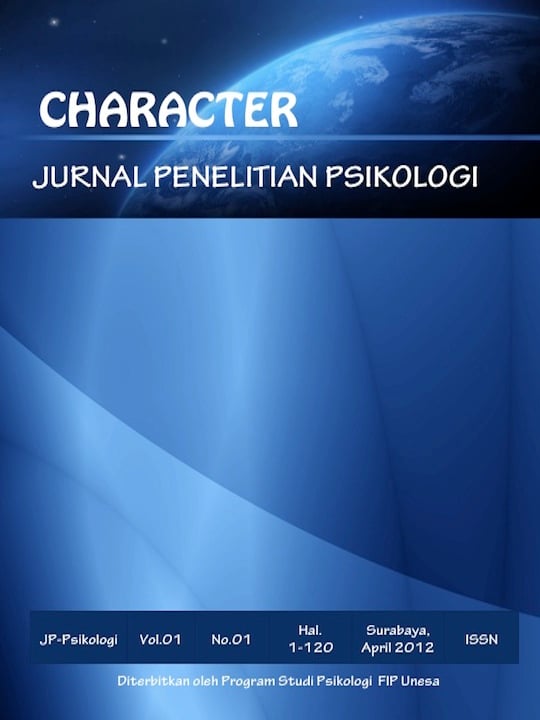FORGIVENESS PADA DEWASA AWAL YANG MENGALAMI GAGAL UNTUK MENIKAH
DOI:
https://doi.org/10.26740/cjpp.v9i1.44549Abstract
Abstrak
Penelitian ini berupaya mengungkapkan alasan partisipan memerlukan forgiveness setelah terjadinya pembatalan pernikahan, proses-proses yang dilalalui dalam memaafkan, dan makna yang didapatkan setelah memberikan pemaafan. Penelitian ini menggunakan metode kualitatif dengan pendekatan studi kasus. Metode pengumpulan data melalui wawancara semi terstrusktur. Dalam mengolah data, penelitian ini menggunakan trigulasi dan analisis tematik. Metode penelitian ini dipilih untuk menjelaskan proses dan faktor-faktor apa saja yang mendukung dan menghambat forgiveness pada dewasa awal yang mengalami gagal menikah. penelitian ini membuahkan beberapa penemuan. Partisipan pertama dan ketiga mampu melakukan forgiveness karena sudah dapat menerima dan tidak ingin memiliki dendam pada orang lain dan partisipan kedua belum mampu melakukan forgiveness karena kurungnya dukungan dari keluarga dan tidak dapat mengungkapkan amarah. Terdapat beberapa persoalan yang dialami oleh partisipan setelah mengalami gagal menikah. persoalan pertama sulit untuk menjalin hubungan dengan orang lain. Persoalan kedua kesehatan psikologis, seperti rasa sakit hati, marah, kecewa, dan depresi. Persoalan ketiga kesehatan fisik. Penelitian ini mengungkapkan bahwa dengan melakukan forgiveness dapat mengurangi stress dan dapat berdamai dengan masa lalunya.
Kata Kunci: Forgiveness, dewasa awal, gagal menikah
Abstract
This study seeks to reveal the reasons participants need forgiveness after the marriage annulment occurs, the processes that go through in forgiving, and the meaning obtained after giving forgiveness. This research uses a qualitative method with a case study approach. The method of collecting data is through semi-structured interviews. In processing the data, this research uses trigulation and thematic analysis. This research method was chosen to explain the process and what factors support and hinder forgiveness in early adults who experience marriage failure. This research led to several findings. The first and third participants were able to do forgiveness because they were able to accept and did not want to hold a grudge against others and the second participant had not been able to do forgiveness because of the lack of support from the family and could not express anger. There are several problems experienced by participants after experiencing marriage failure. the first problem is difficult to establish relationships with other people. The second problem is psychological health, such as heartache, anger, disappointment, and depression. The third problem is physical health. This research reveals that forgiveness can reduce stress and make peace with the past.
Keywords: Forgiveness, early adulthood, marriage failure
Downloads
Downloads
Published
How to Cite
Issue
Section
License
Authors who publish in this journal agree to the following terms:
Copyright in any article is held by the author.
The author grants the journal, publication rights with the work simultaneously licensed under a Creative Commons Attribution License that allows others to share the work with an acknowledgment of the work's authorship and initial publication in this journal.
Authors may enter into separate, additional contractual arrangements for the non-exclusive distribution of the journal's published version of the work (e.g., posting it to an institutional repository or publishing it in a book), with an acknowledgment of its initial publication in this journal.
Authors are permitted and encouraged to post their work online (e.g., in an institutional repository or on their website) prior to and during the submission process, as this can lead to productive exchanges, as well as earlier and greater citation of published work.
 Abstract views: 1642
,
Abstract views: 1642
, PDF Downloads: 2179
PDF Downloads: 2179





